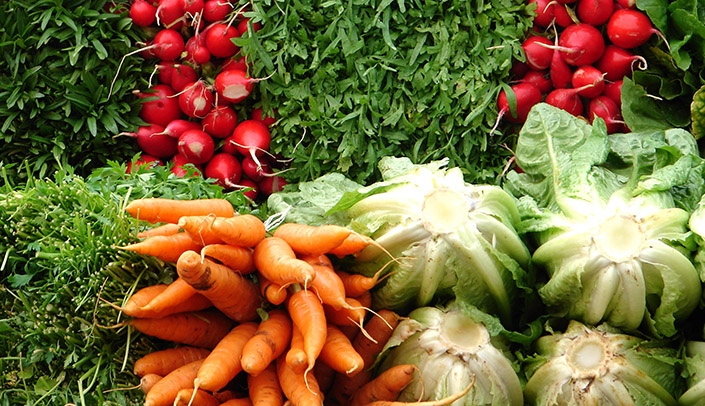In late September, we touched on World Vegetarian Day by sharing various ways that reducing the consumption of animal products can benefit public health, animal welfare and the environment. As we transition into November, it’s time to reflect on World Vegan Month.
The benefits gained from a vegetarian lifestyle increase exponentially when making the shift to veganism, which excludes all animal products (e.g., dairy products), not just meat. In fact, in addition to the health benefits, an Oxford University study shows that "going vegan is the ‘single biggest way’ to reduce your impact on the planet."
The modern era offers breakthrough advancements and countless resources to reach our personal lifestyle and health goals. However, as inspired as we may be to embark on new journeys, the research process may be equally as daunting. We’ve compiled a few "get started" tips and popular recipes to further highlight the benefits of eating vegan and the ease of the transition.
An excellent place to start is to consider which recipes or products you already enjoy that happen to be "accidentally vegan." Likewise, think of some favorite whole foods that could be seamlessly swapped for typical meat and dairy choices. A popular example is supplementing red meat in dishes with portobello mushrooms or eggplant, because they both add texture, flavor and richness, similar to meat. Both options increase your vegetable intake for the day, as well.
Few people have time to prepare every meal, so what are some quick options? Many grocery stores carry a wide variety of pre-packaged, vegan-friendly options. Commonly reached-for products include veggie burgers, plant-based "eggs," dairy-free sour cream and dairy-free cheeses. On the flip side, what about social occasions such as dinner parties? A fantastic way to contribute while allowing for your needs is to offer to bring a dish to share. This chipotle cashew queso always is a hit.
As with any major change in health or lifestyle, discussing individual needs with your medical professional is recommended. Your caregiver will provide appropriate consultation based on specific needs. Such recommendations may include the importance of supplementing your journey with vitamins and minerals to ensure you are receiving the optimum benefits of your chosen diet.
